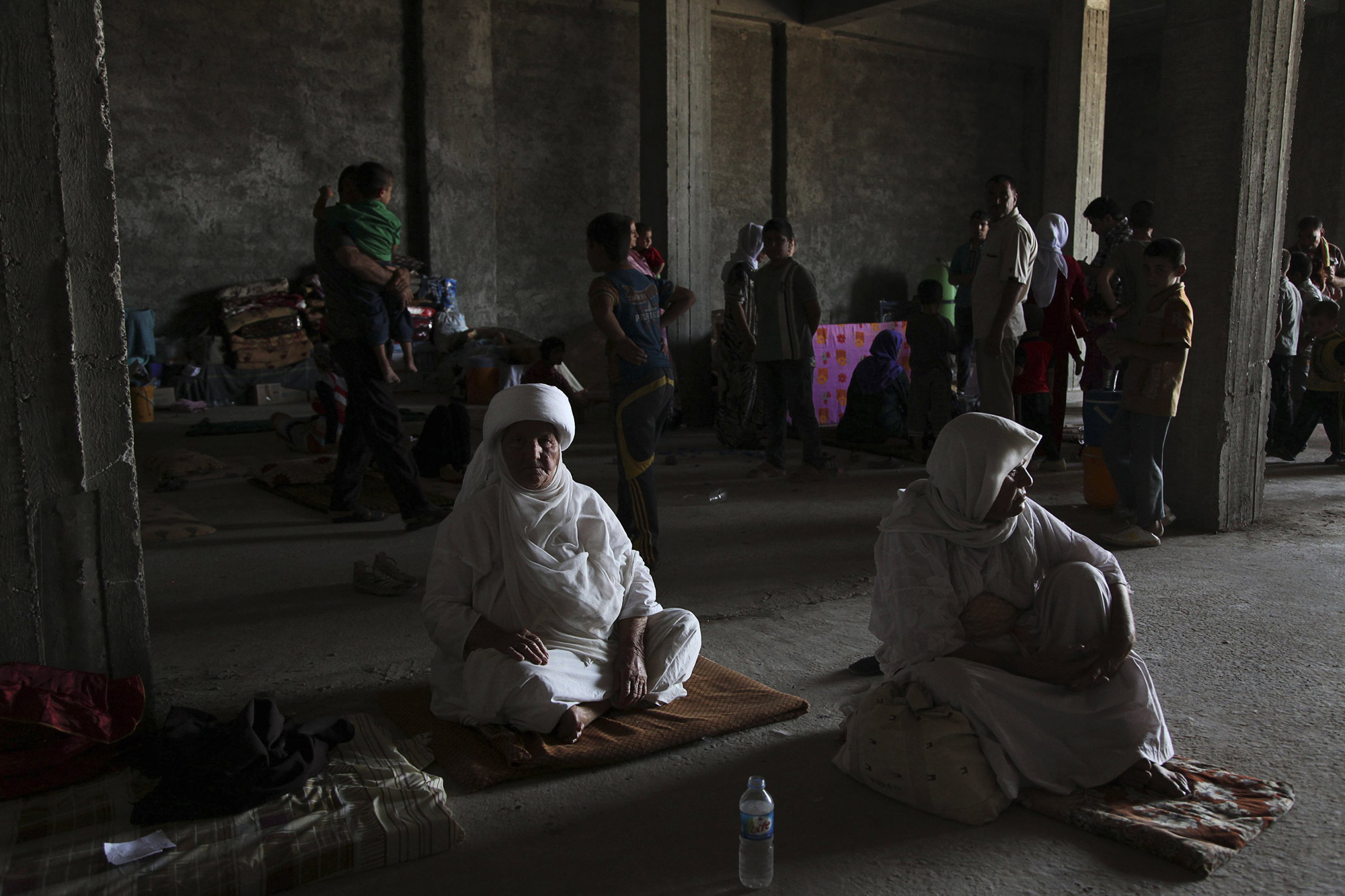
On the peaks of the Sinjar mountains, 50,000 members of the Yazidi people are facing a slow death from dehydration and exposure. Below them waits the Islamic State of Iraq and Syria (ISIS), a militant extremist group who will kill any that descend.
The news Thursday night that President Barack Obama has authorized air strikes against ISIS—strikes that started Friday—may offer little relief. Already several dozen Yazidis have died from lack of water and searing temperatures that reach 122 degrees Fahrenheit. Among the dead are 56 children, a UNICEF spokesperson told TIME.
“The Yazidis are one of the longest surviving ancient religions or sects in the world,” said Farwaz Gerges, a professor of International Relations at the London School of Economics.
Despite this, precious little is known about them. And that’s how the Yazidis prefer it.
“They are a secretive community who pass on oral traditions—much of which is unknown to outsiders,” said Hayder al-Khoei, an associate fellow at Chatham House’s Middle East and North Africa Program. Intermarriage with non-Yazidis is forbidden, and it is impossible to convert to their religion. “To be a Yazidi one must be born into a Yazidi family.”
Though a Kurdish sect and religion, the Yazidi faith has borrowed from multiple traditions. It was founded in the 11th century by a sheik from the major Islamic dynasty, the Umayyad.
“They have borrowed from the Persian tradition, Zoroastrianism (a pre-Islamic religion), Christianity—they believe that Jesus was one of the most important prophets—and Islam,” Gerges said. “It is one of the most complex religions in the world.” The Yazidis believe in reincarnation, perform baptisms, circumcisions and animal sacrifices.
The name “Izidis” literally translates to “worshippers of God.”
The sect is tiny. There are just 700,000 Yazidis worldwide, according to Gerges. Of this number, 600,000 are concentrated in northern Iraq, with their heartland in the town of Sinjar. On Sunday, hundreds of thousands people, Yazidis among them, were forced to flee the Sinjar region as ISIS routed Kurdish forces there.
The Yazidis can’t hope for mercy from ISIS. “Unlike Christians, they’re not even given the option of paying a tax to live under [ISIS’] protection,” al-Khoei said. “[ISIS] believes they are ‘devil worshippers’ who must either be slaughtered or convert to Islam.”
The Yazidis are no strangers to persecution. They have been harassed for centuries based on the misconception they worship the devil. Their faith, al-Khoei said, is dualist not satanic. They believe “that good and evil, God and Satan are part of the same divine creation.”
The Yazidis are monotheistic to an extent, believing that one supreme being known as Yasdan created the earth helped by seven angels. The most important of these is Malak Tawous, the peacock angel or king to whom the Yazidis pray to five times a day. His other name Shaytan means “devil” in Arabic. This, above all else, is what earned them the moniker of devil worshippers.
Though Sunnis and Shi’ites alike call them Satanists, they don’t attack them. But ISIS, which al-Khoei said is on “a genocidal rampage,” won’t tolerate them in its self-declared Islamic caliphate.
This is bleak news for the Yazidis who are already suffering from depleted ranks. “Since the U.S. invasion of Iraq in 2003, we estimate that 15% of the community left for areas like Europe,” Gerges said.
The Yazidis were targeted by al-Qaeda in Iraq and similar groups following Saddam Hussein’s ousting. In 2007, 800 were killed in a series of bomb blasts, hastening the exodus. “The community is terrified that the migration of young Yazidis… will have major problems for the future survival of the people,” Gerges said.
Right now, the future survival of the Yazidis on the Sinjar mountains is in doubt. Scant supplies are reaching the them via U.S. and Iraqi airdrops or from neighboring areas. An eyewitness told the BBC that the Yazidis are currently subsisting on one meal a day. Unless ISIS pulls back or is forced to flee, the mountains, the supposed final resting place of Noah’s Ark, could perform the same role for many more Yazidis.
“We haven’t been able to access them,” said Juliette Touma, a spokesperson for UNICEF. “Getting to [the mountains] by car is very unsafe, it is blockaded by [ISIS] militants.”
More Must-Reads from TIME
- Donald Trump Is TIME's 2024 Person of the Year
- Why We Chose Trump as Person of the Year
- Is Intermittent Fasting Good or Bad for You?
- The 100 Must-Read Books of 2024
- The 20 Best Christmas TV Episodes
- Column: If Optimism Feels Ridiculous Now, Try Hope
- The Future of Climate Action Is Trade Policy
- Merle Bombardieri Is Helping People Make the Baby Decision
Contact us at letters@time.com